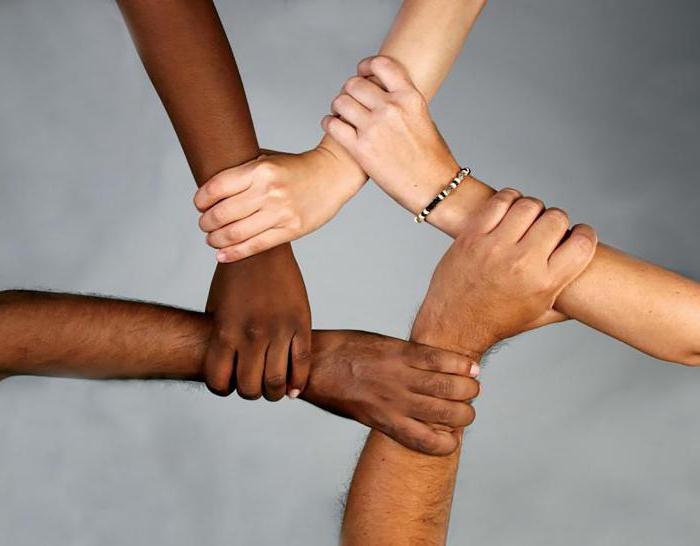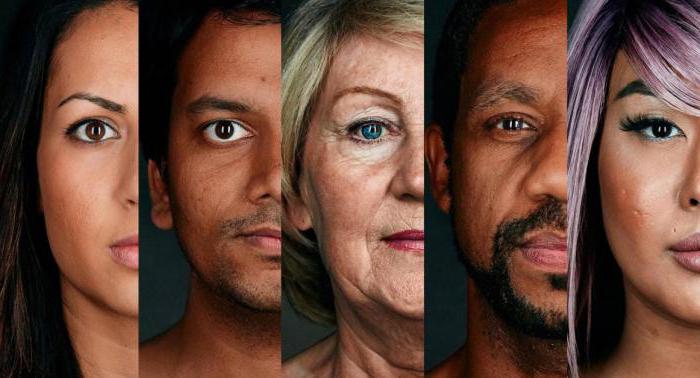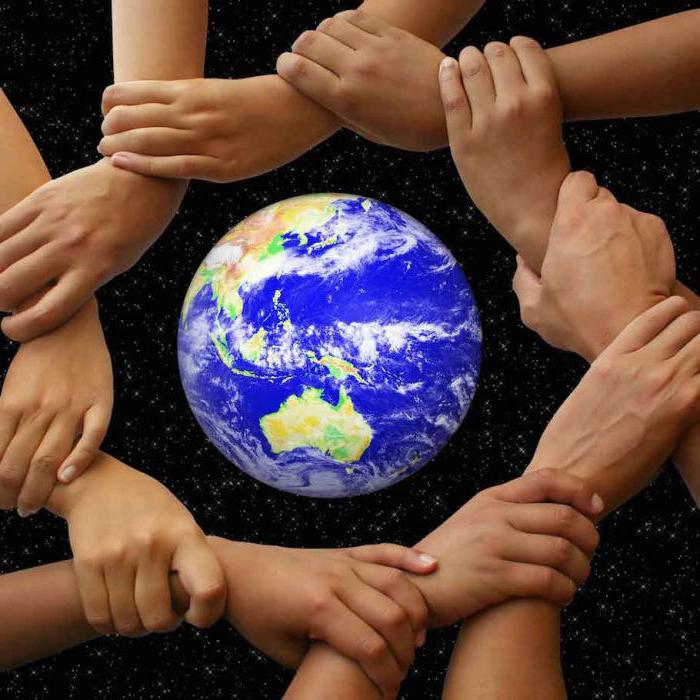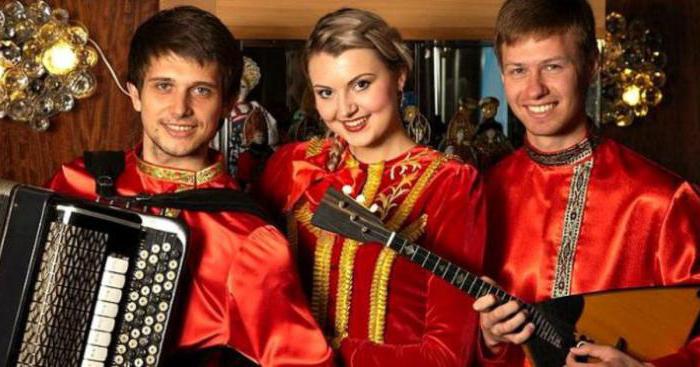At the present stage of development of the global world community, an ambiguous, ambivalent attitude has developed towards understanding such an important social category as nationality. There are several reasons for this.

Social community
Mostly, a split in views on understanding the nature of nationality today is observed along the lines of the countries of the conditional West and East. In the most general sense, belonging to any group should be considered as one of the forms of social community.
There are many of them, and they all meet various criteria. Known linguistic, cultural, religious. The highest manifestation of social community is belonging to civilizations. Scientists give various classifications of civilizational communities, but in the context of modern realities it is most expedient to consider 9 main ones: Western, Islamic, Sin, Japanese, Hindu, South American, African, Orthodox and Buddhist.
This classification is based on geographic and religious criteria.
An even higher form of community is race, of which three are traditionally distinguished: Caucasoid, Mongoloid, and Negroid.
In an attempt to reveal the essence of the concept of nationality, one should move from greater to lesser. Nat community is another form of separation within a particular civilization. Within the Orthodox framework, for example, Russians, Ukrainians, Belarusians, etc. are distinguished.

The difference of approaches to understanding in the West and the East
Returning to the issue of a contradictory attitude to the concept of nationality, it’s worth immediately pointing out that in Western countries, primarily in Europe and the USA, it is not customary to focus on the origin of man.
The reason for this is hypertrophied multicultural politics. Its purpose is to eliminate all differences on a national basis and create a single, homogeneous society.
In Western scientific circles, this concept is called the "Melting Pot", an example of which can be observed in the United States. The modern American community is a derivative of the merger of many nationalities: these are the British, Hispanics, African Americans, Chinese, and representatives of many other nationalities.
Native Americans are now a discriminated minority, forced to live on a reservation so as not to lose their culture and identity. Although this approach to understanding nationality helps to integrate society to a certain extent, it nevertheless contains a number of problematic issues.
In particular, on the example of Europe, where the policy of multiculturalism is also promoted, one can observe the prevalence of immigrants from North Africa and the Middle East over native Germans, French, British, etc. This state of affairs is due to the refusal of the peoples of Europe to protect the integrity of their nations and their cultural heritage. According to Western countries, ethnic division creates conflicts and contradictions between people of different origin.
Therefore, in most European documents this concept is interpreted as correctly as possible. “Nationality” in them implies exclusively territorial affiliation to any state. Citizenship, in fact. And anthropological, cultural and historical factors are not taken into account.

What are the consequences of averaging concepts?
A shift in emphasis from the right to nationality in favor of building a universal society is fraught with the gradual erosion of entire national identities, which can now be seen in France, where the Arab population prevails over the French.
On the other hand, the opposite trend can be observed among the countries of the post-Soviet camp. Former Soviet states, especially CIS countries, tend to be persistent in maintaining the integrity and maintaining the inviolability of their nationalities.
Without exception, all peoples living on the territory of Russia and in neighboring countries are very reverent about their historical origin. Russians, Belarusians, Ukrainians, Kazakhs, Armenians, Azerbaijanis, Georgians - each representative of these communities honors and protects his national history.
The difference between national and ethnicity
Take it into account. Before determining the signs of a person’s nationality, it is necessary to identify the differences between such intersecting categories as nationality and ethnicity.
The line between the concepts is very thin. The term nation comes from an ethnic group. And this is a social group that arose and established throughout history, which is not always attached to a specific territory, prone to isolationism.
A nation is a social community, united by language, culture, history, territory, features of economic life and a common socio-political system. The transformation of an ethnos into a nation occurs when an ethnos becomes a subject of international relations. And, accordingly, gaining worldwide recognition.
Although a nation is a derivative of an ethnic group, this concept is still more multifaceted and broad. As a result, it contains many ethnic groups. A vivid example is the Chinese nation. It includes ethnic groups of Han, Huizu and others.

Why it is worth maintaining a national identity
Now it’s worth moving on to an equally important topic. Namely - to the signs of nationality, which, in fact, form one or another nationality. These include:
- anthropological characteristics (biological and physiological features);
- cultural component (customs, traditions, creativity, folklore);
- common linguistic base (single language peculiar to the nation);
- territorial and geographical place of origin (not necessarily a place of residence, since many national minorities are scattered throughout the world: the Jewish community in Odessa, the Ukrainian diaspora in the USA and Canada, etc.);
- general story;
- the existence of a consolidated national core represented by the state with the executive, legislative and judicial branches of government, the political system.
Each of the components considered is of particular importance. The loss of at least one of them is a sign indicating the degradation of the nation and the regression of this social community.
Depressing is the fact that some countries consciously refuse to recognize the uniqueness of the culture and history of their own nation only out of fear of hurting other people's feelings. In a full-fledged society, awareness and acceptance of the differences of a national individuality should not be a reason for public censure. Everyone must learn this and not be afraid to determine and indicate their nationality in society.

Nationality as a social characteristic
It is a formative element in the process of socialization of citizens. Nationality affects the process of growing up of a person and his formation as a person (mainly on social positioning) in the most direct way.
An example is the events in Germany on the eve of World War II, when a greatly increased degree of public hostility towards Jews made them shy of their origin and forced them to conceal their nationality,so as not to be humiliated and beaten. In these conditions, the Jews did not just become social outsiders of Western Europe. They have become hostages of their origin. Thus, nationality to a significant extent is a determinant of a person’s social status.
Provisions of the Constitution of the Russian Federation
They are also worth paying attention to. More precisely, the article that talks about the right to nationality. Without delving into philosophy and abstract reasoning, for the justification of this right it is enough to turn to the fundamental regulatory documents regulating the principles of the social structure of the state.
Article 26 of the Constitution of the Russian Federation regulates the existence of every citizen of our country the right to freely and voluntarily determine their nationality. The article provides that a citizen is not obliged to present biological and documentary evidence of his origin when choosing it.
These provisions are valid both in cases of the birth of a citizen in a mixed family, where the parents are representatives of different nationalities, and in cases when he appeared in a family of one nationality, but grew up in a foster home.
Based on these two cases, you can give advice. It will be useful to those who do not know how to determine their nationality in documents. Everything is simple. A person from a mixed family is absolutely free to indicate the nationality of one of the parents at his own discretion. And if a person was born in one family and raised in another? Then he should choose the nationality, language, culture and mentality, which he absorbed to a greater extent.

Russian anthropology
The question of Russian nationality was put to scientific understanding at the end of the 19th century. It was then that anthropological research began to emerge in Russia. From 1890 to the middle of the 20th century, a common “Russian portrait” was finally developed in Russian science.
High anthropological homogeneity of Russian populations is noted. All of them have the same cuts and lip shape, the width of the nasal bone and cartilage, the width of the skull. According to these parameters, they are similar to the populations of Western Europe. In terms of abdominal parameters and limb volumes, Russians are akin to central Europeans.
There are other characteristics:
- relatively light pigmentation of the skin, hair, eye shades; the percentage of light shades of hair is approximately 30%, and eyes - 46-50%;
- average growth of eyebrows and facial hairline;
- the dominance of a high horizontal profile and medium planted nose;
- average width of the skull and face;
- a weak slope of the frontal part and a smaller development of the eyebrows.
In conclusion, I would like to say that all nationalities are unique and special in their own way. Everyone should remember their affiliation and not allow discrimination or infringement on this basis. Because we all live on the same planet - this is our common home.